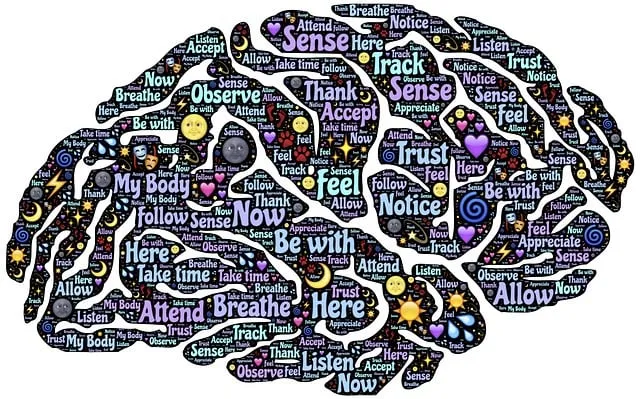Kaiser's focus on culturally sensitive practices significantly improves mental healthcare in Lone Tree, ensuring every resident receives respectful and effective therapy. By addressing cultural biases, implementing community outreach programs, and fostering empathy through compassion cultivation, Kaiser overcomes barriers like language differences and stigmas to provide tailored care aligned with diverse needs. Their commitment to inclusive services builds trust and encourages access to mental health resources among all Lone Tree community members. Thus, Lone Tree residents can be confident in Kaiser's coverage of mental health therapy designed with cultural sensitivity in mind.
Mental healthcare practices must embrace cultural sensitivity to provide effective treatment, especially in diverse communities. This article explores the critical role of understanding and addressing cultural biases in mental health care. We delve into how organizations like Kaiser prioritize cultural competence, examining their approaches to serving various populations. Additionally, we discuss strategies for navigating cultural barriers to therapy and present a case study on Lone Tree’s successful culturally sensitive practices, highlighting its impact on patient outcomes.
For those seeking coverage, Kaiser does offer mental health therapy services as part of their healthcare plans.
- Understanding Cultural Sensitivity in Mental Healthcare
- The Impact of Cultural Biases on Treatment Outcomes
- Kaiser's Approach to Mental Health Care and Cultural Competence
- Navigating Cultural Barriers to Accessing Therapy
- Strategies for Culturally Sensitive Practice: A Case Study on Lone Tree
Understanding Cultural Sensitivity in Mental Healthcare

Mental healthcare practices that are culturally sensitive are essential for providing effective treatment to a diverse range of patients. Cultural sensitivity involves understanding and respecting the unique beliefs, values, and behaviors of individuals from different backgrounds. It’s about creating an environment where patients feel seen, heard, and understood, which can significantly impact their willingness to seek help and engage in therapy. For example, a patient from a specific cultural community may have particular expectations or taboos surrounding mental health issues, and a culturally sensitive practitioner can tailor their approach to address these nuances.
In the context of Lone Tree, understanding cultural sensitivity is crucial when considering Kaiser’s coverage of mental health therapy. Kaiser, as a healthcare provider, must ensure that its services align with the diverse needs of its community members. This involves not only offering therapy but also employing practitioners who can communicate effectively and sensitively across various cultures. Additionally, strategies like community outreach programs can foster trust and encourage individuals from marginalized communities to access mental health resources, preventing burnout among practitioners by creating a more inclusive and supportive healthcare ecosystem. Effective communication strategies are vital to bridging cultural gaps and ensuring that every patient receives the highest quality of care.
The Impact of Cultural Biases on Treatment Outcomes

Cultural biases among healthcare providers can significantly impact treatment outcomes for patients from diverse backgrounds. These biases, often unconscious, stem from societal stereotypes and generalizations about different cultural groups. When left unaddressed, they can lead to misdiagnoses, inappropriate treatment plans, and a lack of culturally sensitive care. For instance, a provider’s preconceived notions might influence their assessment of symptoms or interpretation of behaviors, causing harm to patients seeking mental healthcare services.
In the context of Lone Tree, where Kaiser offers mental health therapy, ensuring cultural sensitivity is paramount. Patients from various ethnic, racial, and cultural origins may face unique challenges in accessing and navigating healthcare systems. Therefore, providing culturally competent care becomes a vital aspect of effective treatment. This involves incorporating Self-Care Practices and Coping Skills Development tailored to individual needs while promoting Healthcare Provider Cultural Competency Training to foster inclusive and empathetic interactions between providers and patients.
Kaiser's Approach to Mental Health Care and Cultural Competence

Kaiser, known for its comprehensive healthcare services, approaches mental health care with a focus on cultural sensitivity and competence. They recognize that effective treatment requires understanding the unique cultural backgrounds and beliefs of their patients, especially in diverse communities like Lone Tree. This approach emphasizes the importance of self-awareness exercises among mental health professionals to navigate the intricate web of cultural differences and create inclusive environments.
By integrating cultural competence into practice, Kaiser aims to improve access and outcomes for all individuals seeking therapy. They understand that mental health issues do not exist in a vacuum but are influenced by social, economic, and cultural factors. Therefore, their strategies involve promoting positive thinking and providing resources for depression prevention tailored to diverse populations, ensuring that every patient receives care aligned with their specific cultural needs.
Navigating Cultural Barriers to Accessing Therapy

In many communities, cultural barriers often prevent individuals from seeking mental healthcare. These barriers can include language differences, cultural stigmas surrounding mental health, and limited access to specialized services. For instance, in areas like Lone Tree, where Kaiser offers mental health therapy, understanding the diverse cultural landscape is crucial for ensuring inclusivity. Many patients may face challenges in communicating their needs due to language barriers, affecting the quality of care they receive.
Compassion cultivation practices can play a significant role in bridging these gaps. By fostering empathy and understanding between healthcare providers and patients from different cultural backgrounds, these practices enhance therapeutic relationships. Moreover, building confidence and resilience among patients through tailored interventions can encourage them to persist in their therapy journeys. This is especially important when navigating the complex web of cultural differences, ensuring that mental healthcare remains accessible and effective for all.
Strategies for Culturally Sensitive Practice: A Case Study on Lone Tree

Lone Tree, a diverse community with a rich cultural fabric, presents unique challenges and opportunities for mental healthcare providers. To ensure culturally sensitive practice, several strategies can be employed. One notable example is Kaiser’s implementation of a Community Outreach Program designed to bridge the gap between cultural barriers and mental health services. This program fosters trust and understanding by offering free or low-cost therapy options tailored to various cultural needs.
Furthermore, Lone Tree’s Mental Health Department provides crisis intervention guidance and conflict resolution techniques as part of their comprehensive services. These tools empower both patients and practitioners to navigate cultural differences constructively, creating a safe space for open communication. By integrating these strategies, Kaiser demonstrates its commitment to culturally competent care, ensuring that every resident in Lone Tree has access to mental health resources that respect and honor their individual backgrounds.
Cultural sensitivity in mental healthcare is no longer a consideration—it’s a necessity. As we’ve explored, cultural biases can significantly impact treatment outcomes, highlighting the critical need for competent and inclusive practices. Organizations like Kaiser have set impressive standards through their focused approaches to cultural competence. Meanwhile, communities like Lone Tree offer valuable case studies on successful navigation of cultural barriers, demonstrating that accessible, culturally sensitive therapy is achievable. For those seeking care, understanding these dynamics ensures that mental health services are not only effective but also tailored to diverse needs, ultimately fostering better outcomes and stronger connections to wellness.






